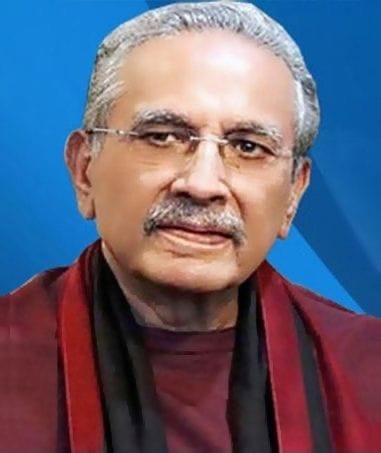Staff Report
ISLAMABAD:Shahid Rashid Butt, a prominent business leader and former president of the Islamabad Chamber of Commerce, has raised concerns by alleging that some policymakers are actively working to dismantle Pakistan’s rising solar energy sector.
He emphasized that the urgency of this situation cannot be overstated as some policies are a clear indication of the loyalty of top officials to the agenda of IPPs (Independent Power Producers) and a concerted effort to destroy public investment in clean energy.
Speaking to traders and industrialists, Shahid Rashid Butt highlighted the plight of the citizens. He pointed out that the citizens were first humiliated through artificial hikes in electricity prices, which forced many to take loans to pay utility bills. When people turned to solar systems for survival, they are now being punished for that choice. This is not just an assault on the growth of solar energy but also a direct attack on citizens’ right to affordable energy.
Shahid Rashid Butt said that frequent changes in net metering regulations, unjustified taxes on solar equipment, and import hurdles are all part of a systematic plan designed to force consumers back into dependency on overpriced electricity. According to him, authorities are waging an open war against solar adoption, aiming to crush solar investment and destroy thousands of businesses tied to the renewable energy sector.
He added that such behavior reflects hostility toward the people and loyalty to corrupt energy lobbies. The government, he claimed, first encouraged citizens to adopt solar energy through various incentives and campaigns, and now those very people are being penalized. This, he said, is not policymaking but a calculated act of betrayal that the citizens are feeling deeply.
He warned that current policies are suffocating public trust, strangling investments, and driving the nation further into economic hardship. With thousands of local businesses and jobs at stake and the entire renewable energy sector on the verge of decline, the consequences could be irreversible—a fact that cannot be ignored.
Shahid Rashid Butt demanded an immediate end to retaliatory actions against solar users, constitutional protection for net metering policies, and the integration of clean energy into state-backed policy frameworks. Only then, he said, can Pakistan find a sustainable solution to its energy crisis, environmental challenges, and economic pressures.
He cautioned that if this adversarial attitude toward solar users continues, it may trigger legal battles, public backlash, and mass protest movements, for which the government will be solely responsible.
Shahid Rashid Butt urged all stakeholders, including civil society, industry leaders, and environmental advocates, to raise their voices before it is too late.
He emphasized that protecting solar energy is not just an economic necessity but also a moral and environmental obligation for the nation. He made it clear that it is only through collective action we can bring about the necessary change.
He emphasized that protecting solar energy is not just an economic necessity but also a moral and environmental obligation for the nation. He made it clear that it is only through collective action we can bring about the necessary change.
Shahid Rashid Butt also pointed out that Pakistan cannot afford to abandon its green transition at a time when global economies are rapidly shifting toward sustainable energy sources. He said the country must prioritize long-term national interest over short-term profiteering by vested groups.
Ignoring solar potential will isolate Pakistan from international green financing and technological collaborations. He called for immediate parliamentary attention and policy correction to avoid long-term strategic damage.

